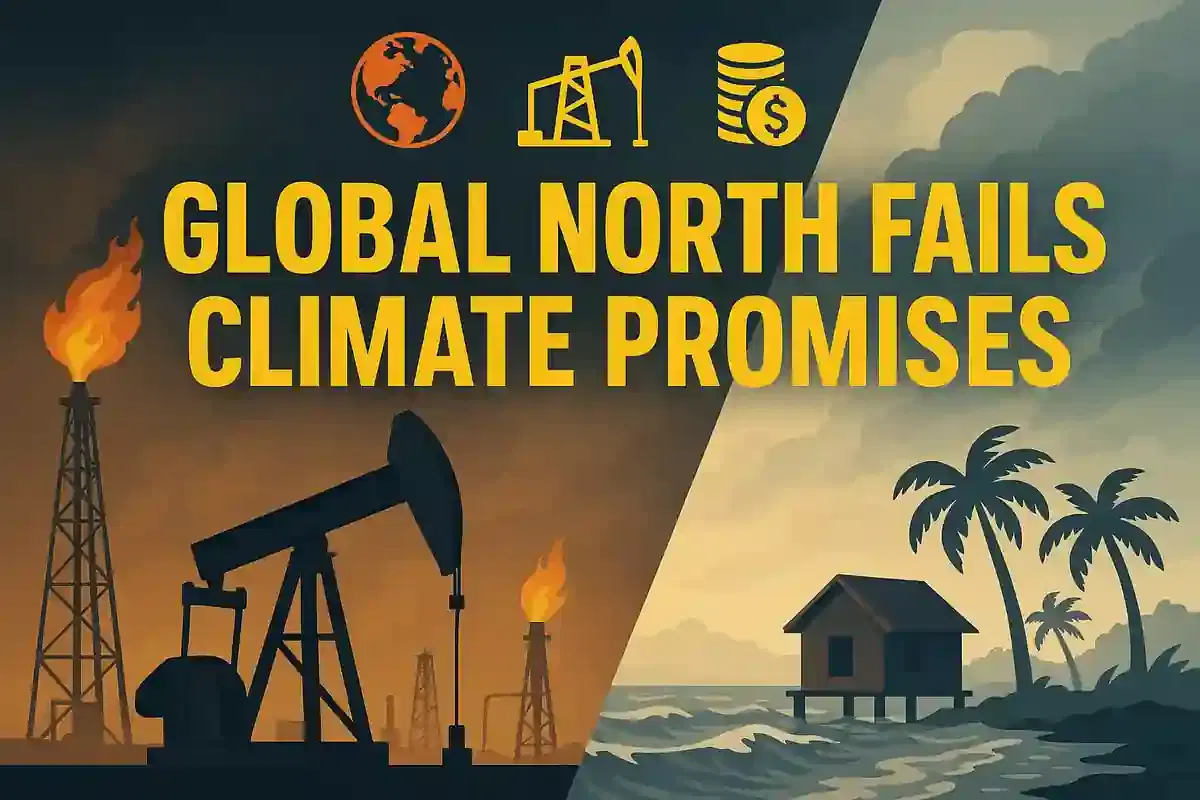Global North Nations Accused of Undermining Fossil Fuel Phase-Out Efforts
Environment
|
29th October 2025, 7:31 AM

▶
Short Description :
Detailed Coverage :
A recent analysis by Oil Change International (OCI) on October 29, 2025, reveals that four Global North countries – the United States, Canada, Australia, and Norway – are primarily responsible for hindering global efforts to phase out fossil fuels. Between 2015 and 2024, these nations increased oil and gas production by nearly 40%, while the rest of the world saw a 2% decrease. The United States alone accounted for over 90% of the net global increase, adding approximately 11 million barrels of oil equivalent per day. This expansion contradicts their Paris Agreement commitments. OCI states these countries are "pouring fuel on the fire," mocking justice towards developing nations that have reduced output despite economic dependence. Global North governments have supported over half of future planned fossil fuel projects. Australia saw the steepest rise (77%), and Norway continues Arctic drilling licenses. Wealthy nations provided only $280 billion in climate finance (2015-2024), far below the $1-5 trillion needed annually. OCI reports $465 billion in public subsidies for fossil fuel producers since 2015. Ending these subsidies could mobilize trillions for climate action. The carbon budget for 1.5°C warming may be exhausted within three years. OCI urges immediate action: phase out new projects and deliver equitable finance to the Global South.
Impact rating: 6/10.
Difficult Terms: Paris Agreement: Treaty to limit global warming to 1.5°C. Fossil Fuels: Coal, oil, and gas formed from ancient organisms. Global North: Developed countries (e.g., US, Canada). Global South: Developing countries (e.g., Africa, Asia). Barrels of Oil Equivalent (boe/d): Unit measuring energy from different fuels. Decarbonisation: Reducing carbon emissions, switching to clean energy. Climate Finance: Aid from developed to developing nations for climate action. COP30: Major UN climate summit.